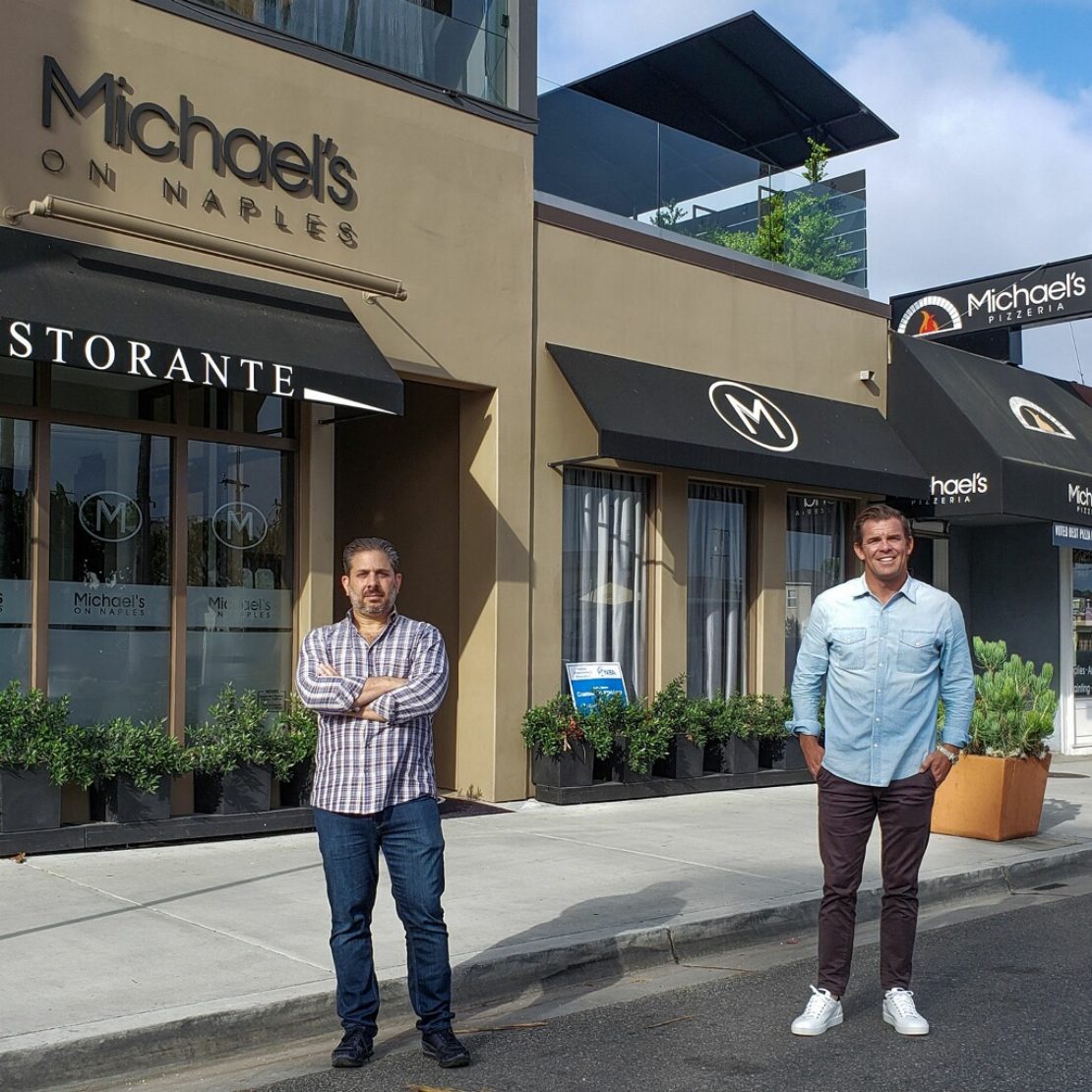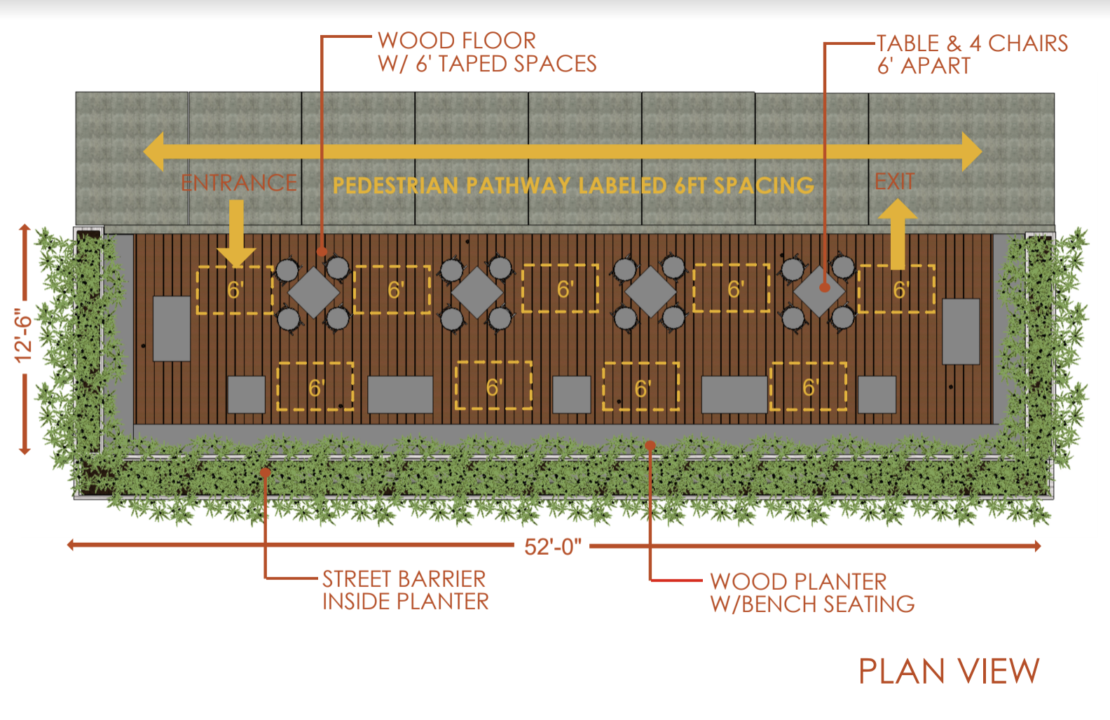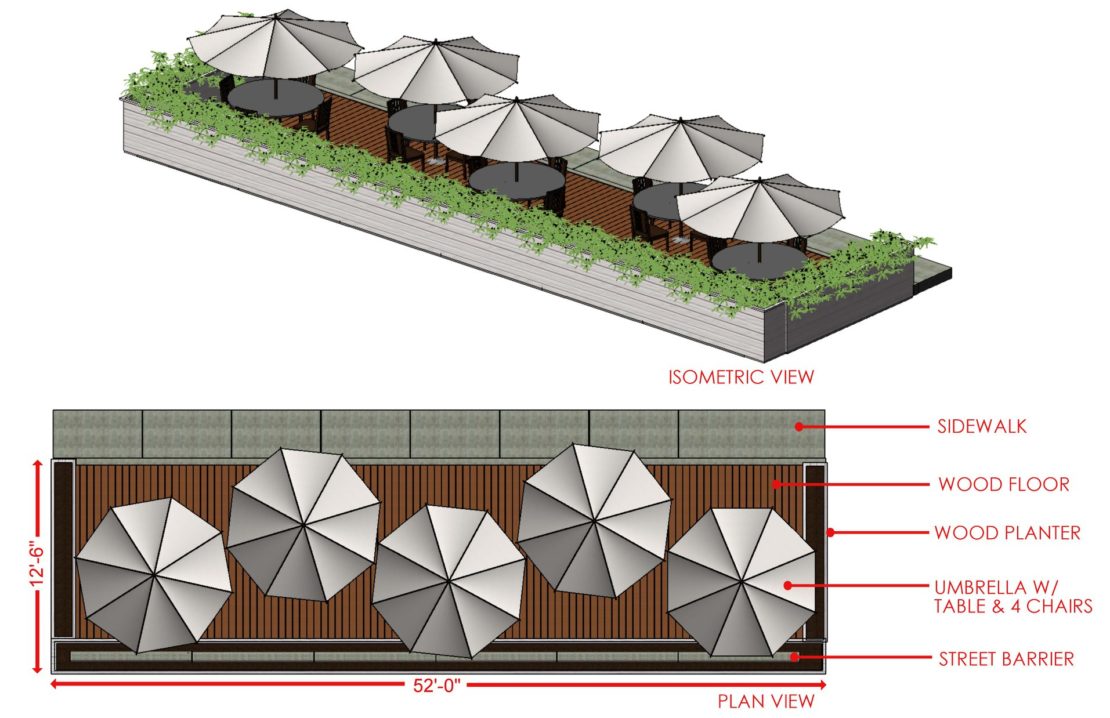Ryan Choura, owner of Choura Events, has found himself in a very difficult part of his career. The coronavirus pandemic hit just weeks before he was to head out to the Coachella Valley to begin setting up for what has become the world’s largest music festival. Now, with that canceled, he sits with hundreds of thousands of square feet of storage space filled with product that make the festival stages, booths, food vendors and basically every other aspect of the festival, come alive.
“We sent out our first truck to the valley and then, bam, everything is done,” Choura said. “But you know, I’ve never been one to see things as doom and gloom, and while we began offering equipment to help with setting up temporary hospitals [like the overflow space at the Pasadena Convention Center for its hospital] and testing centers, I really wanted to focus on something local.”
That focus is now on Long Beach restaurants by taking his in-house equipment to first build a parklet at Michael’s on Naples with the hope that he will eventually help other restaurants create outdoor spaces.

Choura began reaching out as soon as the pandemic hit to restaurant owners, but his proposals were met with very little enthusiasm. That is, until he connected with Carl Dene, the man leading Michael’s Restaurant Group (Michael’s on Naples, Michael’s Pizzeria, Michael’s Downtown, Chianina Steakhouse).
“The whole community has long been pushing to re-imagine 2nd Street,” Dene said. “Slow down traffic, create more intimate spaces, and Ryan presented the perfect opportunity. And not just that, he’s making it affordable. He understands what we’re going through.”

Parklets, though urban design gems proven to calm traffic and increase patronage, are pricey. Permitting and construction are just two parts of that uptick in cost but a relief in regulatory issues presents restaurants with new possibilities.
“Honestly, there’s not a lot of time,” Choura said. “We need to move quick and I hope the city, with its recent initiative, will be helpful with permitting and turnaround time because parklets cost so much money for restaurants. And I know how to not only do it cheaper, but do it with a taste and a feel that stays true to that restaurant I’m working for.”
Without having to go through multiple sources and keeping it all in-house, Choura can create a one-stop shop to design and ultimately execute the ideas handed to him.

Choura and Dene will focus on Michael’s on Naples, creating a parklet that will not empty pockets while feeling right for the space: K-rails—those heavy, concrete protective barriers you see lining the Grand Prix, will define the space while helping to keep diners safe from anything crashing into them. Seating will remain six feet apart to follow social distancing.
Also, Choura’s warehouse could prove useful to Long Beach Public Works which, before the council voted to approve the initiative opening up spaces for different uses, admitted that they are short on supplies and may not be able to fulfill the requests of every business.
“I would love to be a partner with the city on this,” Choura said. “I am able to build temporary facilities of any size, any square footage. Uneven street? No worries.”
Choura went on to talk about how he would be able to take on, say, a full street closure and create an entire experience that, even if temporary, would make people feel connected to their community while providing a space for businesses to flourish.

